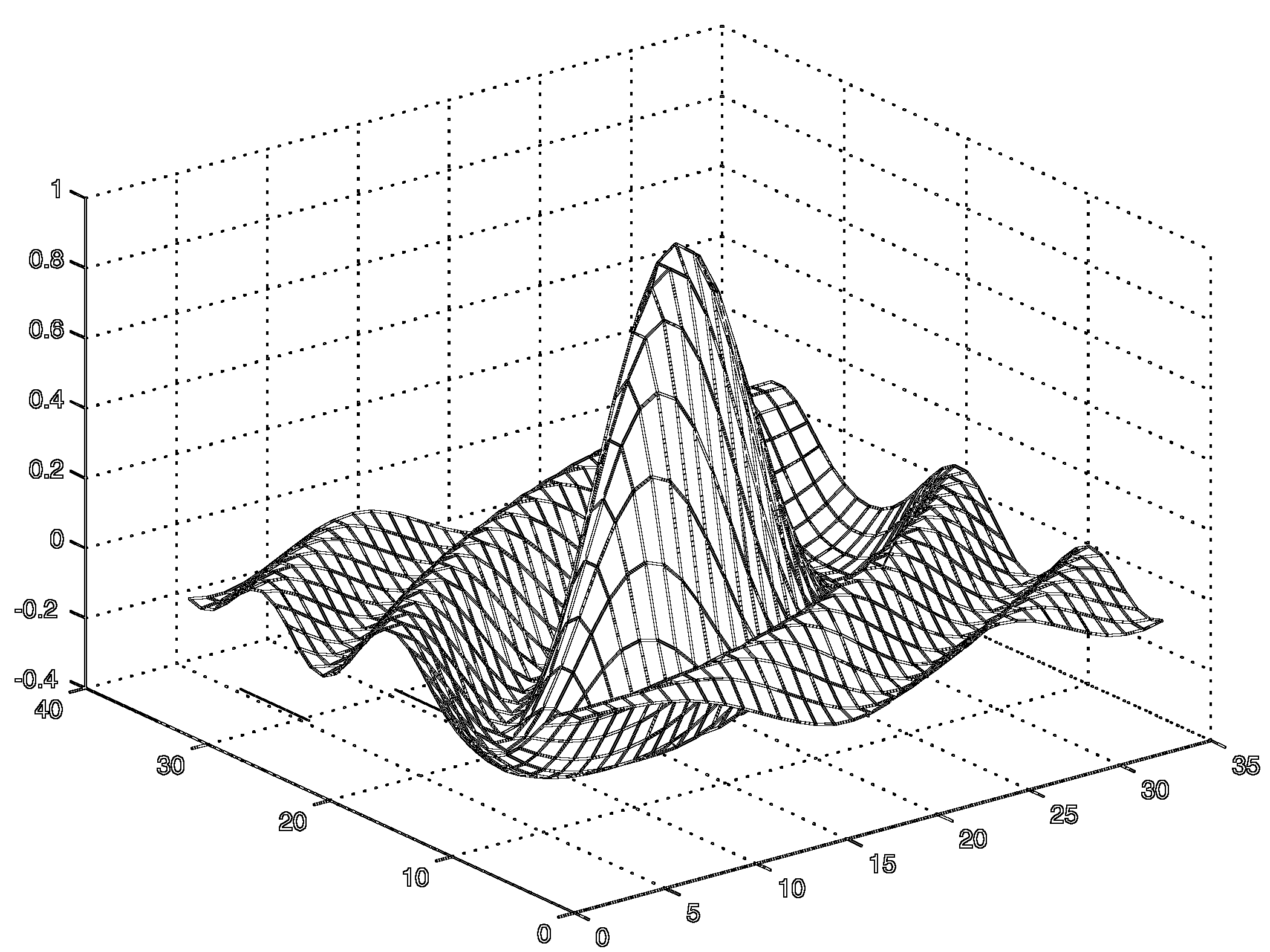The behavioural approach to systems theory, due principally to Jan Willems, involves the identification of a system with its behaviour, which is the set of trajectories associated with it. In the classical case, a trajectory is an input or output signal, but the behavioural theory makes no initial distinction between inputs and outputs.

Our principal motivation for studying this approach to systems theory is the study of multidimensional systems. A multidimensional system is a system in which information propagates in more than one independent direction (rather than in one direction, normally taken to be the time axis). Such systems have applications in image processing, seismology and paper-rolling type processes, for example, as well as in any control or information processing problem described by partial differential equations.
We study linear shift-invariant (for one-dimensional systems, time-invariant) systems. It is easy to show that the behaviours of such systems are modules over an appropriate polynomial ring (with a number of indeterminates equal to the dimension of the system, classically 1). An important class of such systems is those which can be expressed as the solution set of a finite number of linear partial differential equations with constant coefficients. It has been shown by Ulrich Oberst that there is a categorical duality between finitely generated modules over polynomial rings, on the one hand, and the class of behaviours just identified, on the other. It follows that the theory of such behaviours is precisely dual to the well-studied theory of finitely generated modules over a polynomial ring.
Essentially because the structure of a polynomial ring is less rich when more than one indeterminate is involved, the theory of multidimensional linear systems is considerably more complicated than the one-dimensional case. Many problems which have been completely solved in the 1D case are still outstanding even in just two dimensions.
Using the combined techniques of behavioural systems theory and commutative algebra (i.e. the study of rings and modules), we hope to express many of the problems of multidimensional systems theory in a common framework and make some progress towards solving them.
Progress to date has included the development of a formal theory of matrix primeness and the generalization of many 2D results on controllable and autonomous systems to the nD case. We have also developed definitions, characterizations and a full categorization of the poles of nD systems using this framework. Work done by other researchers using these techniques includes a solution of the Cauchy problem, analysis of transfer matrices and transfer classes, and the development of a theory of system equivalence. The correspondences between interesting system-theoretic properties and well-studied algebraic concepts are quite startling.
More recent work includes definition and characterization of nD system zeros; and a formal approach to the control problem for nD systems (in collaboration with Paula Rocha). We have also been studying extensions of the duality theory to the case of variable coefficients, and homomorphisms/ isomorphisms of multidimensional behaviours.
From September 1995 to September 2002 this project was funded by the EPSRC, under a pair of successive research grants held by Eric Rogers and David Owens at the University of Exeter. Since October 1998 Jeffrey Wood has been funded under the Royal Society's University Research Fellowship scheme.
During the course of this project we have enjoyed useful collaboration with Krzysztof Galkowski (Technical University of Zielona Gora, Poland), Ulrich Oberst (University of Innsbruck, Austria), Jan Willems (University of Groningen, The Netherlands), Paula Rocha (University of Aveiro, Portugal), and Eva Zerz ( University of Kaiserslautern, Germany).
Principal publications.
For further details, please contact Jeffrey Wood:
Email: jjw@ecs.soton.ac.uk
Fax: +44 (0)1703 594498